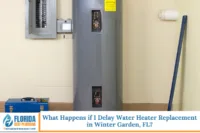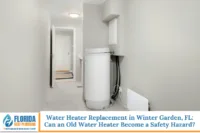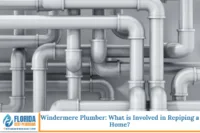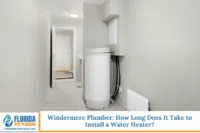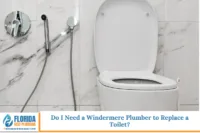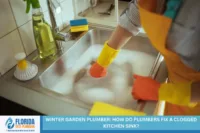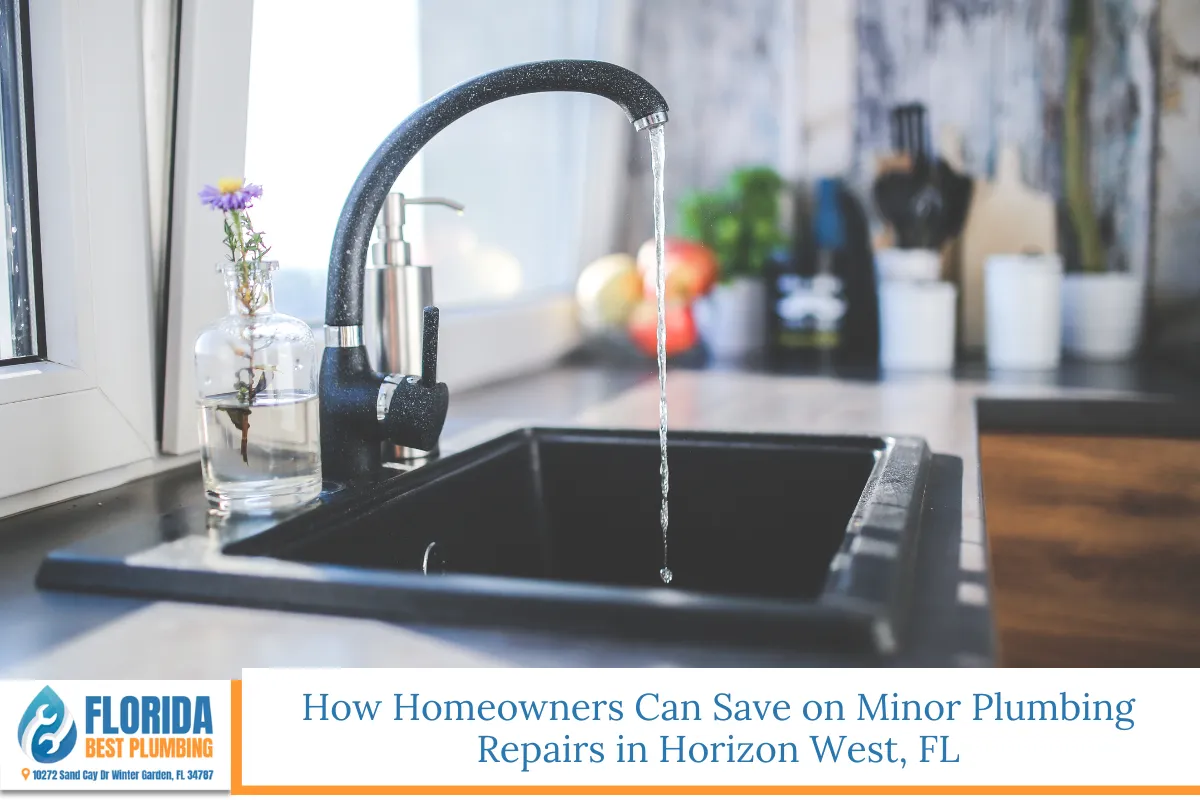
Living in Horizon West, FL, means enjoying sunny weather, close-knit communities, and beautiful homes. However, even the most well-maintained houses encounter issues, and plumbing problems are among the most common. A reliable plumber can be a valuable resource when things get serious. Still, many minor repairs can be handled effectively with the right approach. Knowing how to spot these problems early and taking simple preventive steps can save homeowners hundreds, if not thousands, of dollars each year.
This guide explains the most common minor plumbing issues encountered in Horizon West homes, how to address or prevent them, when to call a professional, and what homeowners can do to minimize plumbing-related expenses without compromising quality.
What Counts as a Minor Plumbing Problem?
In plumbing terms, not every issue is an emergency. Some problems can be considered minor if they don’t pose immediate risks, such as flooding or water damage. These smaller concerns still need attention, but usually don’t require full-scale repairs or urgent services.
Dripping Faucets
This is one of the most common issues in any home. A slow, repetitive drip from a kitchen or bathroom faucet might seem like a small annoyance. Still, it adds up quickly in wasted water. Most of the time, it’s caused by a worn-out rubber washer or seal inside the faucet handle. These parts can be replaced with basic tools and a bit of time. Left unattended, however, that dripping water can stain sinks, damage fixtures, and increase your water bill.
Running Toilets
A toilet that runs constantly after being flushed often signals a problem inside the tank. This could involve the flapper not sealing properly, a loose chain, or a float set too high. Each of these parts helps control the flow of water between the tank and the bowl. When they stop working correctly, the result is water endlessly refilling and getting wasted. Fortunately, most of these parts are inexpensive and easy to replace with a bit of guidance.
Clogged Bathroom or Kitchen Drains
Drains slow down when a buildup forms inside the pipes. In bathrooms, that’s usually hair and soap. In kitchens, grease and food particles are to blame. These clogs don’t happen overnight, but they can cause water to drain more slowly over time. Ignoring the problem often leads to complete blockage. Basic drain cleaning solutions or manual tools, such as a plastic hair snake, can help clear these clogs early before they require a plumber’s intervention.
Leaky Showerheads
Another source of water waste is a showerhead that continues to drip after the water has been turned off. This could be due to mineral deposits inside the showerhead or a worn-out rubber washer at the connection point. Replacing the washer or sealing the threads with plumber’s tape can usually stop the leak.
Low Water Pressure
A drop in water pressure may seem like a bigger issue. Still, if it’s only affecting one faucet or fixture, it’s usually easy to fix. Build-up inside aerators or showerheads can restrict the flow of water. Removing the parts and soaking them in vinegar helps dissolve mineral deposits, restoring normal flow without the need for professional help.
Why These Small Issues Shouldn’t Be Ignored
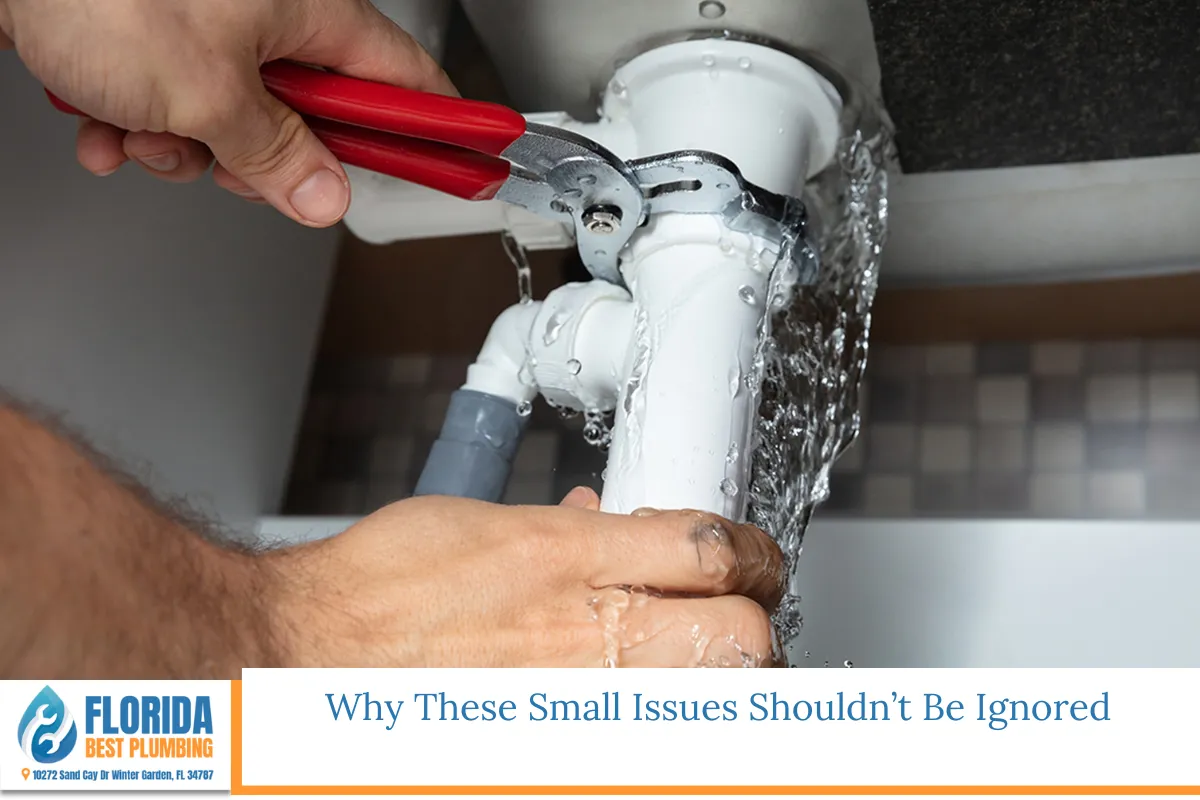
It’s easy to delay minor repairs, especially when they don’t seem urgent. However, over time, small problems can escalate into larger ones. A minor leak can lead to mold, mildew, or warped cabinetry. A slow drain might be a symptom of deeper pipe problems. Low pressure in one fixture might eventually affect your entire plumbing system.
Taking these issues seriously from the beginning is key. Not only will you protect your home’s condition, but you’ll also avoid costly emergency calls to a plumber down the road.
Smart Fixes You Can Try Before Calling a Plumber
Many homeowners are surprised by how much they can accomplish with a few simple tools and a willingness to learn. Here’s how you can approach a few common problems with confidence.
Fixing a Dripping Faucet
Turn off the water supply under the sink, remove the faucet handle, and take out the old washer or cartridge. Take it with you to a hardware store to get an exact replacement. Once reassembled, the leak should stop. This repair usually takes less than 30 minutes.
Adjusting a Running Toilet
Lift the toilet tank lid and check if the flapper is sealing properly. If it appears worn or warped, it needs to be replaced. Make sure the chain isn’t tangled or too tight, and adjust the float level to control the water fill line. Many repair kits come with clear instructions.
Clearing a Slow Drain
Avoid using chemical drain cleaners regularly, as they can damage pipes. Instead, try a mix of boiling water, baking soda, and vinegar. Let it sit for 15 minutes and flush with more boiling water. You can also use a plastic drain snake to remove blockages physically.
Preventive Steps to Avoid Plumbing Issues in the First Place
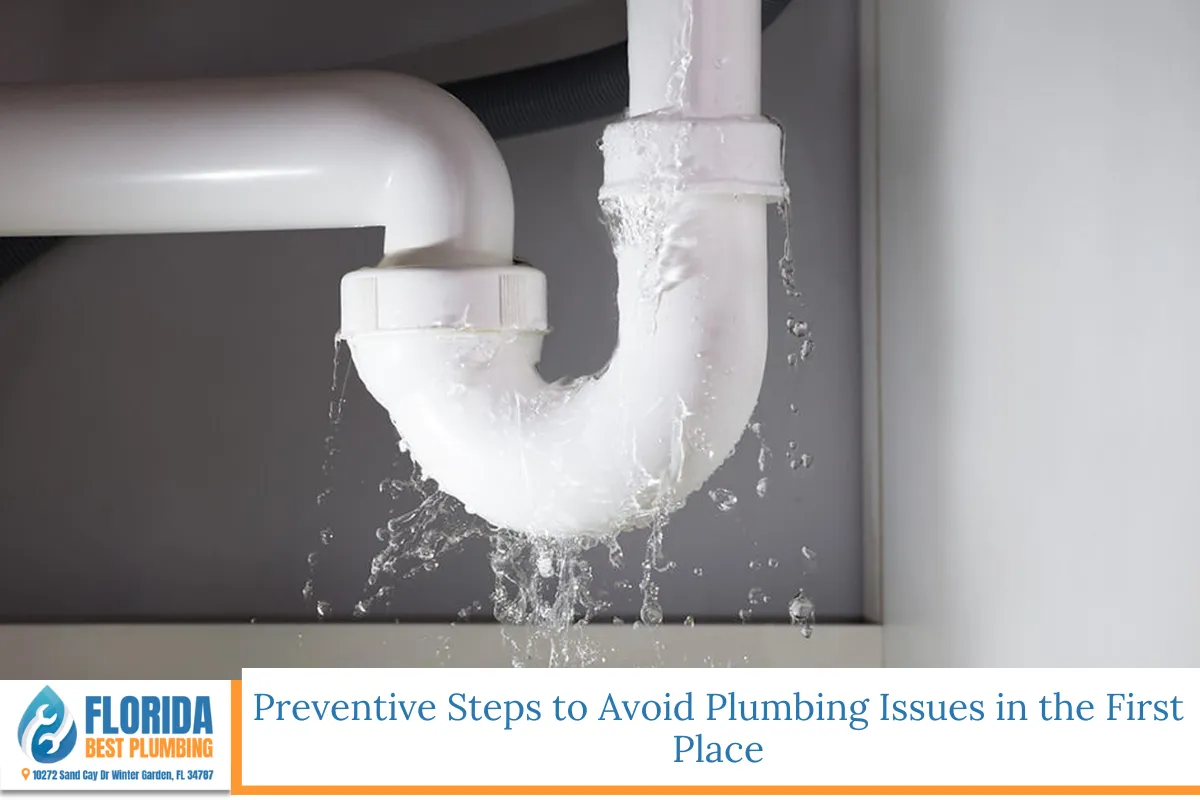
Preventive maintenance is one of the best strategies for saving money on plumbing. A few consistent habits can extend the life of your pipes and fixtures, reduce the number of problems, and help you catch issues before they grow.
Use Drain Covers
Strainers or screens over sink and shower drains catch hair, food bits, and other debris before they go down the pipes. These inexpensive tools prevent clogs and are easy to clean and maintain.
Don’t Ignore Early Signs
Listen for strange gurgling sounds, watch for slower drainage, or check for wet spots around cabinets. These early warning signs often indicate issues that can be resolved quickly before they escalate and become more severe.
Flush Your Water Heater
Over time, sediment accumulates at the bottom of water heaters, especially in areas with hard water, such as Horizon West. Flushing the heater once a year can improve efficiency and prevent future repairs.
Know Your Shutoff Valves
Learn where the main water shutoff valve is and how to turn it off. If something goes wrong, you’ll want to stop the water flow immediately to prevent further damage.
Common Mistakes That Lead to Unnecessary Plumbing Costs
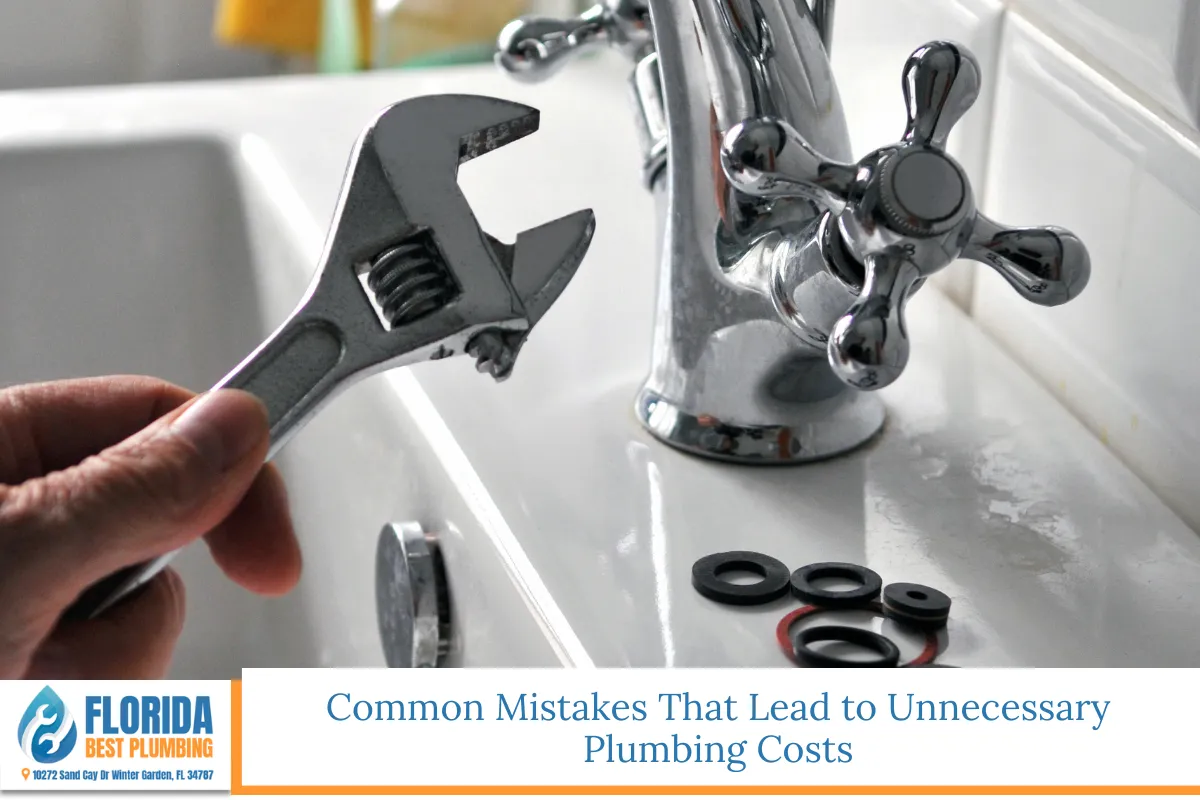
Some habits or misunderstandings can exacerbate plumbing problems. Knowing what not to do is just as important as learning how to fix things.
Overusing Drain Cleaners
Harsh chemicals may seem like a quick fix, but repeated use can damage your pipes. Stick to natural methods or mechanical tools whenever possible.
Ignoring Small Leaks
Even a few drops per minute add up over time. Small leaks can grow into major issues that damage cabinets and floors.
Overtightening Connections
Using excessive force when tightening a pipe or fitting can cause parts to crack or strip threads, leading to increased leaks and the need for professional assistance.
Knowing When It’s Time to Call a Professional Plumber
Some jobs require skills and equipment that go beyond basic fixes. Recognizing when to stop and bring in an expert can save time, money, and stress.
- If water is leaking behind the walls or under the foundation
- If multiple drains are backing up at once
- If you smell sewage in your home
- If you’ve tried a DIY fix and the problem keeps coming back
A licensed plumber has the experience and tools to diagnose these complex issues and offer safe, long-lasting solutions.
Budgeting for Plumbing Maintenance
Plumbing problems are never convenient, but they’re a lot easier to manage with a small savings plan in place. Set aside a modest amount each month in a home maintenance fund. Consider buying basic plumbing tools, such as a plunger, adjustable wrench, plumber’s tape, and drain snake — they’ll quickly pay for themselves.
Another option is looking into home warranty plans that include plumbing coverage. These can offset the cost of repairs, especially if your home is older or has outdated fixtures.
The Impact of Horizon West’s Environment on Plumbing
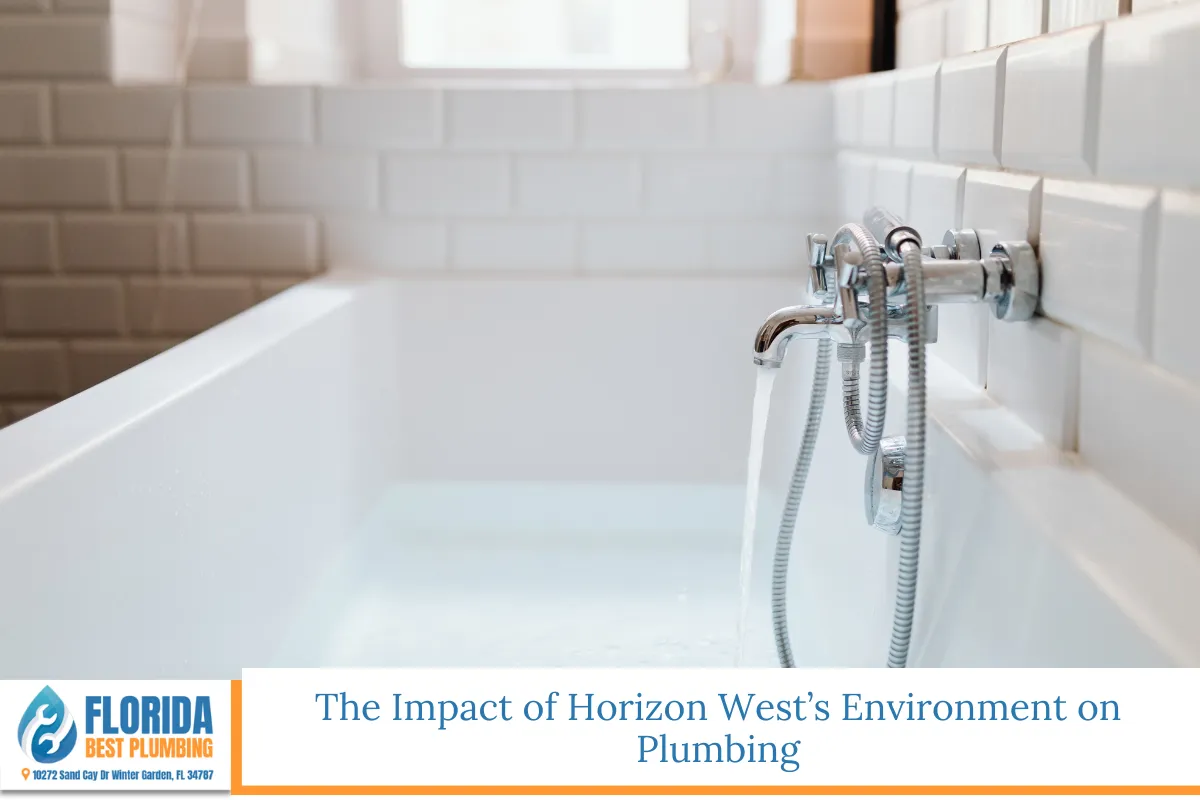
In Horizon West, the climate and soil conditions can significantly impact the performance of your plumbing. The region’s water tends to have higher mineral content, which contributes to sediment buildup in fixtures and appliances. The humid environment can also lead to mold and moisture issues if leaks go unnoticed.
Frequent summer rainstorms put extra pressure on sewer lines and outdoor drainage systems. It’s a good idea to inspect gutters, outdoor drains, and exposed pipes before and after storm season to ensure everything is flowing properly.
Small Fixes, Big Savings – Keep Your Home Flowing Smoothly
Saving money on minor plumbing repairs starts with awareness. By recognizing the early signs of trouble, utilizing preventive measures, and addressing minor issues promptly, homeowners in Horizon West can avoid more significant repair bills down the road. A little effort now means fewer headaches later.
And when a situation calls for more than a DIY approach, having a dependable plumber on call ensures peace of mind. From everyday maintenance to urgent fixes, taking care of your home’s plumbing is one of the smartest ways to protect your investment and your comfort.
Horizon West Plumber – Florida Best Plumbing LLC
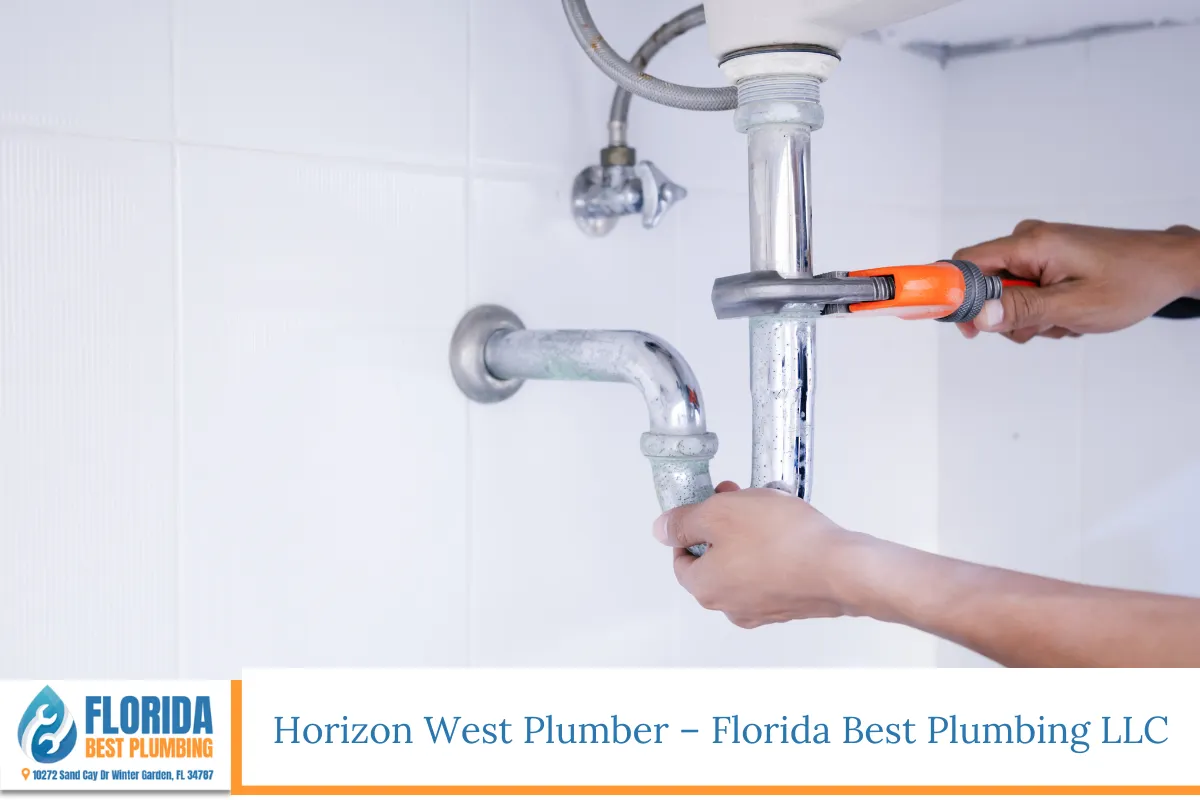
Florida Best Plumbing LLC offers reliable plumbing services throughout Horizon West, FL. From small repairs to full system replacements, we handle every job with care and attention to detail. Whether it’s a leaking pipe, a broken water heater, or a clogged drain, we’re ready to fix the problem quickly and correctly.
Our services include whole-house repiping, water heater installation and replacement, drain cleaning, toilet and sink repair, faucet replacement, shower and bathtub updates, garbage disposal repair, and more. We’re also available 24/7 for emergency plumbing situations. Call us anytime at (407) 683-6644 for fast, dependable service you can count on!
Frequently Asked Questions About Plumbing in Horizon West, FL
1. What causes a sudden drop in water pressure at home?
A sudden drop in water pressure can be alarming, especially if it affects multiple fixtures. The issue may stem from several causes:
- Leaking pipes hidden in walls or underground
- A partially closed main water line valve
- Build-up in your plumbing system, especially in older galvanized pipes
- Malfunctioning pressure regulators
- Clogged drains or aerators
Another serious concern is slab leaks, which occur beneath the home’s foundation and often go undetected until damage becomes apparent. These leaks can lower pressure while causing costly water damage.
It’s important not to ignore reduced pressure. Low pressure may seem minor, but it could signal a more significant issue within the water system. A licensed plumber in Horizon West can test pressure levels, inspect for internal damage, and make the necessary repairs to restore proper flow. Timely action also helps prevent future burst pipes or water supply issues.
2. How can I tell if my home has a hidden plumbing leak?
Leaking pipes aren’t always visible, especially when they’re located behind walls or under concrete slabs. But there are clear signs to watch for:
- An unexplained spike in water bills
- Damp or warm spots on floors
- Low water pressure in one or more fixtures
- Peeling paint or bulging drywall
- Persistent foul odors from walls or flooring
- Sudden signs of mold growth
If you suspect a hidden leak, turn off all water fixtures and check your water meter to determine if a leak is present. If it continues to run, there’s likely a hidden leak somewhere in your plumbing system.
Hidden leaks, especially slab leaks, should be addressed immediately. They not only waste water but also cause long-term structural issues. Over time, even a small leak can lead to foundation shifting or expensive water damage. Horizon West homeowners are advised to schedule routine inspections or preventative maintenance checks with a licensed plumber to catch these issues early and protect the home’s water system.
3. Why do I keep getting clogged drains in my kitchen or bathroom?
Recurring clogged drains are a common plumbing complaint. While they may seem like a minor nuisance, they often indicate ongoing problems in the plumbing system.
Here are typical causes:
- Kitchen drains: Grease, food scraps, and soap scum build up in pipes over time.
- Bathroom drains: Hair, toothpaste, and body oils often restrict water flow.
- Old or corroded pipes: Rust and mineral deposits can reduce the diameter of pipes.
- Improper plumbing design: A poor slope or inadequate venting can trap debris.
- Tree roots: Infiltrate underground lines and block flow near the main water line.
To reduce frequent clogs:
- Use sink strainers and clean them regularly.
- Avoid pouring grease down the drain.
- Flush drains monthly with a baking soda and vinegar solution.
Persistent blockages should be assessed by a local plumber, especially if foul odors accompany the clogs. They may use hydro jetting or camera inspection to identify the root cause and protect your water system from damage.
4. What are the risks of delaying repairs for a leaky faucet?
A leaky faucet may not seem like a major issue, but it leads to serious long-term problems:
- Wasted water: A single dripping faucet can waste up to 3,000 gallons of water annually.
- Higher water bills
- Potential mold growth around sinks and countertops
- Corrosion in fixtures and connecting pipes
- Pressure imbalances in your plumbing system
If ignored, the constant dripping can also damage countertops or wooden cabinets due to water damage. The moisture creates the perfect environment for mold spores to thrive, leading to respiratory problems and indoor air quality issues.
From a water conservation standpoint, fixing a leak saves both water and money. Replacing a washer or cartridge is a simple fix that prevents more costly repairs later.
Horizon West homeowners should practice preventative maintenance by checking all faucets regularly. Suppose you’re unsure how to repair the leak. In that case, a plumber can handle it quickly to stop unnecessary water waste and ensure your water system remains efficient.
5. How does a faulty water heater affect my plumbing system?
A failing water heater can cause several plumbing problems that go beyond cold showers. Common signs include:
- Inconsistent hot water or no hot water at all
- Discolored or smelly water
- Strange noises from the tank
- Water is pooling near the unit
But the effects go further. A corroded heater may leak, causing water damage to floors and walls. It may also cause pressure fluctuations throughout your plumbing system, affecting other fixtures. In some cases, sediment build-up in the tank reduces heating efficiency, driving up energy bills.
A faulty unit may also trigger burst pipes, especially in colder weather when the heater fails to maintain adequate temperatures.
To extend the life of your water heater, flush it annually to remove sediment and test the pressure relief valve. If it’s over 10–15 years old, consider replacing it with a more efficient model. Local plumbers can help select, install, or maintain a unit suited to your water supply needs.
Read more: Signs You Need a Plumber for Drain Problems in Horizon West, Florida
What Happens if I Delay Water Heater Replacement in Winter Garden, FL?
Water Heater Replacement in Winter Garden, FL [...]
Water Heater Replacement in Winter Garden, FL: Can an Old Water Heater Become a Safety Hazard?
Why Aging Water Heaters Are More Than [...]
Windermere Plumber: What is Involved in Repiping a Home?
A Fresh Start: Why Repiping Matters for [...]
Windermere Plumber: How Long Does It Take to Install a Water Heater?
Uncovering the Truth About Water Heater Installation [...]
Do I Need a Windermere Plumber to Replace a Toilet?
Why Hiring a Windermere Plumber Matters for [...]
Winter Garden Plumber: How Do Plumbers Fix a Clogged Kitchen Sink?
If you need a plumber in Winter [...]


